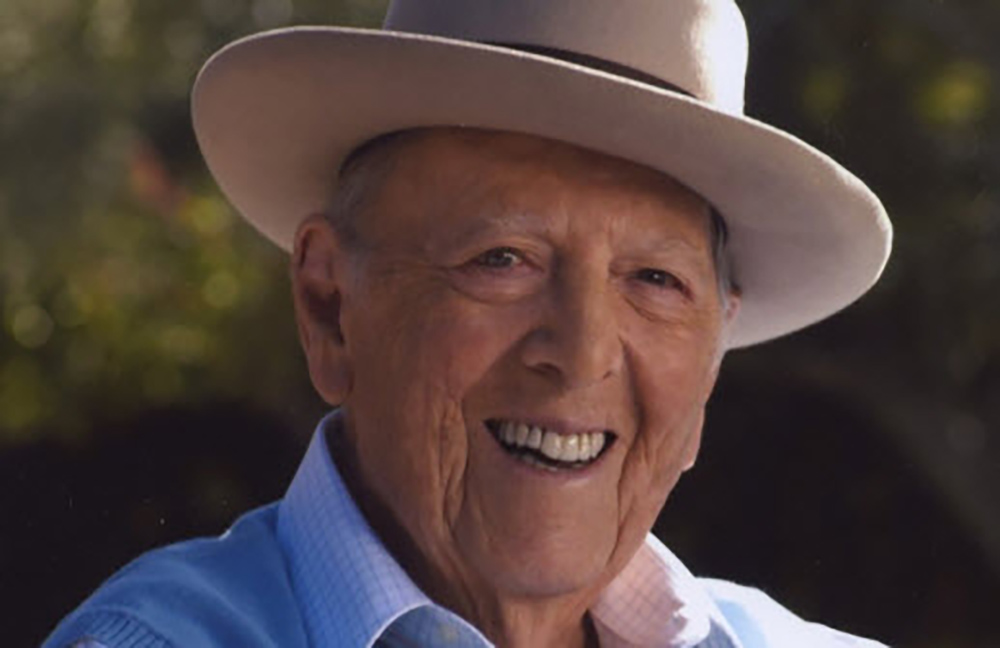Herman Wouk, the bestselling Orthodox Jewish author, died last Friday at the age of 103, ten days shy of his 104th birthday. Wouk’s unmatched literary career spanned for nearly seven decades. He can easily be given credit for ushering Judaism into the American mainstream. Wouk, who was awarded the Pulitzer Prize for “The Caine Mutiny” in 1951, authored two dozen novels and nonfictions. “The Caine Mutiny”, which was on the best-seller list for two years, and the best-selling “Marjorie Morningstar” from 1955 were both adapted for the screen. His novels “The Winds of War” and “War and Remembrance” were likewise both turned into popular television miniseries.
From the onset, of his debut novel, “Aurora Dawn,” in 1947, to his last book, “Sailor and Fiddler: Reflections of a 100-Year-Old Author” in 2015, Wouk continually wove in themes central to the American Jewish experience into his writings. The prolific and immensely popular writer used his fame to normalize Jewish religious observance in the United States. As reported by VIN News, Wouk made Jewish religious observance appear conventional in his books. Scenes of a Passover seder and a bar mitzvah service became scenes of middle-class American life in “Marjorie Morningstar.” Wouk had a gift for turning a story about Jews into a middle-class American classic.
In his book, “This Is My God”, he introduced readers to the laws of kashrut, family purity and the holidays of Sukkot and Shavuot. In a revolutionary effort, the book showed, through stories from Wouk’s own glamorous Manhattan life, that it was not a paradox to be both a modern prosperous American and a practicing Orthodox Jew.
Born in the Bronx on May 27, 1915, Wouk was the son of immigrants from Belarus. Wouk, who had an early love for reading, attended Columbia University, where he served as editor of its humor magazine. He also took courses at Yeshiva University. Wouk also proudly served in the U.S. navy during WWII, and received a U.S. Navy Lone Sailor Award.
For a brief time, after graduating, Wouk abandoned his religious lifestyle when he became a radio dramatist, writing for the renowned comedian Fred Allen. Although he was successful, Wouk said he felt his life was empty without Jewish learning and religion. He permanently returned to his pious level of observance. Despite numerous moves, secular peers and criticism in many cases, everywhere he resided he was sure to set up Jewish study and prayer groups.
Wouk appeared on the cover of Time in 1955. The magazine lauded Wouk’s unusual blend of popularity and success, alongside his unrelenting Jewish religious observance. “He is a devout Orthodox Jew who had achieved worldly success in worldly-wise Manhattan while adhering to dietary prohibitions and traditional rituals which many of his fellow Jews find embarrassing,” the article wrote.
Wouk was a dedicated husband to the same woman for more than six decades. Wouk is survived by two of his sons, Nathaniel and Joseph, and three grandchildren.





